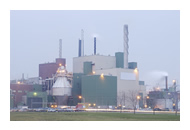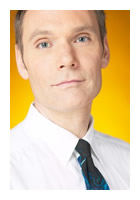 Many of us are inclined to lie to get ahead, and research has shown that more than 50% of people lie on their resumes.
Many of us are inclined to lie to get ahead, and research has shown that more than 50% of people lie on their resumes.
Fake degrees, fabricated work history, little extensions of dates here and there. I can understand the motivation to lie to move your career forward, but I don’t get how people live with the possible consequences. What if you get caught and you don’t land the job you’ve been hoping for? What if you land the job and your deceptions are later discovered? Is it worth living day-to-day in fear that your lie will be detected? And guess what — employers are catching on to the rampant lying and conducting more thorough background checks.
Bottom line: The potential benefits of lying on your resume do not outweigh the risks.

 If you’re in manufacturing, read my latest article posted on Monster: Manufacturing Resume Tips. Research for the article showed that manufacturing industry pros enjoy higher-than-average wages, but yet employers have a hard time finding qualified candidates. Hank Cox, media relations VP for
If you’re in manufacturing, read my latest article posted on Monster: Manufacturing Resume Tips. Research for the article showed that manufacturing industry pros enjoy higher-than-average wages, but yet employers have a hard time finding qualified candidates. Hank Cox, media relations VP for  You should always be networking, even — or especially — when you’re not looking for a job. My new article Resume Networking Tips for the Holidays has just been posted on Monster, and discusses the importance of networking with your resume — even during the holidays. Many employers are hiring at the end of the year, and this is the time when many of your competitors are snoozing.
You should always be networking, even — or especially — when you’re not looking for a job. My new article Resume Networking Tips for the Holidays has just been posted on Monster, and discusses the importance of networking with your resume — even during the holidays. Many employers are hiring at the end of the year, and this is the time when many of your competitors are snoozing. If you’re like many workers, as your career progresses you add to your resume. But what do you take away to accommodate the new information? If you don’t edit the old stuff, your resume will soon become an unwieldy monster.
If you’re like many workers, as your career progresses you add to your resume. But what do you take away to accommodate the new information? If you don’t edit the old stuff, your resume will soon become an unwieldy monster. Did you ever see a resume that was impossibly perfect? Sort of like the airbrushed and
Did you ever see a resume that was impossibly perfect? Sort of like the airbrushed and  How much information are you giving to con artists when you post your resume online? It could be more than you realize, opening yourself up to identity theft, junk mail, and email scams. My article Getting Personal on Your Resume: How Much Info Is Too Much? provides tips on how to avoid being a victim of online improprieties, while giving your resume the exposure needed for a successful job search.
How much information are you giving to con artists when you post your resume online? It could be more than you realize, opening yourself up to identity theft, junk mail, and email scams. My article Getting Personal on Your Resume: How Much Info Is Too Much? provides tips on how to avoid being a victim of online improprieties, while giving your resume the exposure needed for a successful job search. Does your resume present you in the best light? You only have a few seconds to make a good first impression, so make sure your resume effectively delivers your marketing message. If you’re not sure, download our
Does your resume present you in the best light? You only have a few seconds to make a good first impression, so make sure your resume effectively delivers your marketing message. If you’re not sure, download our  Deborah sent me an email today and asked, “I’m having such a hard time finding a job because I’m moving to Dallas from Florida. Employers won’t give me the time of day when they see I’m in Florida. Help!”
Deborah sent me an email today and asked, “I’m having such a hard time finding a job because I’m moving to Dallas from Florida. Employers won’t give me the time of day when they see I’m in Florida. Help!” A salary history is a document that contains your earnings history, but consider the consequences before providing your salary information. Employers often use this information to weed out candidates or to see how “cheap” they can get an employee. Your ability to negotiate a salary offer down the line might be compromised if you state your actual history.
A salary history is a document that contains your earnings history, but consider the consequences before providing your salary information. Employers often use this information to weed out candidates or to see how “cheap” they can get an employee. Your ability to negotiate a salary offer down the line might be compromised if you state your actual history. Michael P. is ready to modernize his resume. He writes, “I’ve been using the same resume style for the past 10 years – a chronological style. Are there any new resume formats I should use?”
Michael P. is ready to modernize his resume. He writes, “I’ve been using the same resume style for the past 10 years – a chronological style. Are there any new resume formats I should use?”